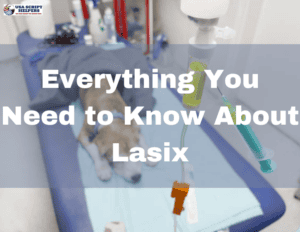Atrial fibrillation (Afib) is a type of arrhythmia that can be caused by obesity. It occurs when the heart’s electrical signals become irregular, causing the heartbeat to speed up or slow down. This can cause palpitations, chest pain, fatigue, and shortness of breath.
While Afib is not life-threatening in itself, it can be dangerous if left unchecked. Fortunately, there are ways to manage Afib when it comes to obesity.
Weight Loss Strategies for Managing Afib
The first step in managing your Afib is to work on losing weight. Losing weight has been shown to reduce the risk of developing Afib and reduce symptoms when it does occur. You may need to make some lifestyle changes in order to achieve this goal.
These include eating healthier foods in smaller portions, increasing physical activity levels, and incorporating stress management techniques into your daily routine. In addition, you should speak with your doctor about any medications that might help you reach your goal.
Monitoring Your Heart Rate
In addition to weight loss strategies, it’s important to monitor your heart rate regularly with a home monitoring device or at your doctor’s office. This will help you detect any irregularities early on before they become more serious issues. In particular, pay attention if your pulse rate is consistently above 100 beats per minute or below 60 beats per minute as this could indicate an arrhythmia such as Afib that needs medical attention right away.
Regular monitoring can also help you determine whether any lifestyle changes you’ve made have had the desired effect of reducing your symptoms or improving overall heart health.
Medication Management
Finally, it’s important to work closely with your healthcare provider on medication management for Afib if needed. There are several types of medications available that can help control heart rate and rhythm as well as reduce inflammation associated with obesity-related conditions such as hypertension and diabetes that can further aggravate Afib episodes.
Be sure to discuss potential side effects and drug interactions with your doctor before taking any medication for managing Afib symptoms related to obesity.
Jardiance and Saxenda for Weight Loss Medication
If you are an afib patient who is looking to lose weight, you may be considering taking a weight loss medication. Two of the most popular prescription medications for weight loss are Jardiance and Saxenda.
These medications have been shown to help people lose weight, but with any prescription medication it’s important to understand how they work and what potential side effects may occur.
How Jardiance and Saxenda Work
Jardiance and Saxenda work in different ways, but both offer effective solutions for those who need help losing weight. Jardiance works by blocking sugar from being absorbed into your bloodstream, reducing the amount of calories your body takes in.
Saxenda, on the other hand, helps control hunger by sending signals to the brain that tell it you’re full after eating a smaller portion of food. This decreases the amount of food your body consumes overall and can help with long-term weight loss goals.
Potential Side Effects
Any type of prescription medication comes with potential side effects, including Jardiance and Saxenda. Some common side effects associated with these medications include nausea, headache, dizziness, fatigue, constipation, dry mouth or throat, diarrhea, vomiting and stomach pain. It’s important to talk to your doctor about any side effects that occur while taking these medications so that they can provide medical advice if necessary.
Cost Considerations
Jardiance and Saxenda are both relatively expensive prescriptions; however there are many insurance companies that cover them as part of their health plans. If insurance does not cover these medications then it is also possible to apply for assistance programs from drug manufacturers in order to get discounted prices on prescriptions or even free samples if necessary. It’s also important to consider all of the potential costs associated with each medication before making a decision about which one is right for you.
With Usa Script Helpers you can easily purchase both Jardiance and Saxenda online without having to leave your home! You can also call us today at our toll free number 1-888-646-7749
Conclusion:
Managing atrial fibrillation (Afib) caused by obesity requires a multi-pronged approach that includes weight loss strategies, close monitoring of heart rate patterns over time, and appropriate medication management when needed in consultation with a healthcare provider.
Weight loss alone cannot cure Afib but it can reduce symptoms and improve overall cardiac health significantly when done properly under the supervision of a trained medical professional who understands the nuances between how these conditions interact with each other.


















